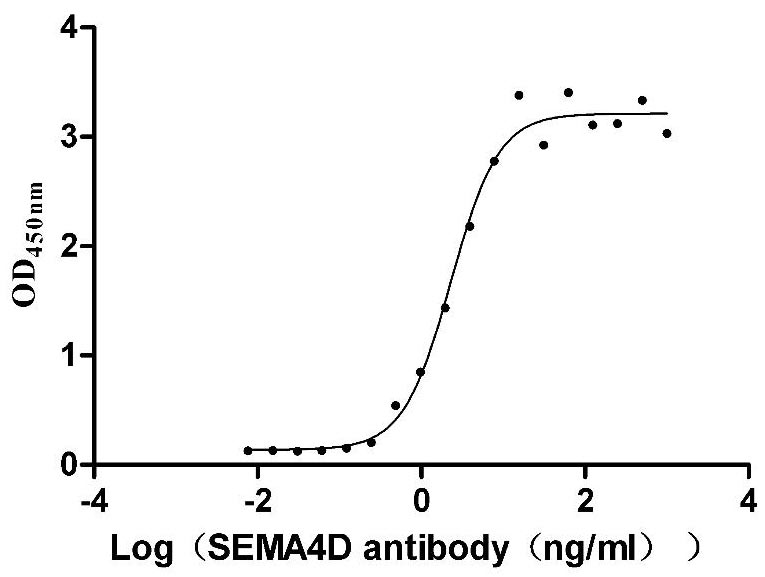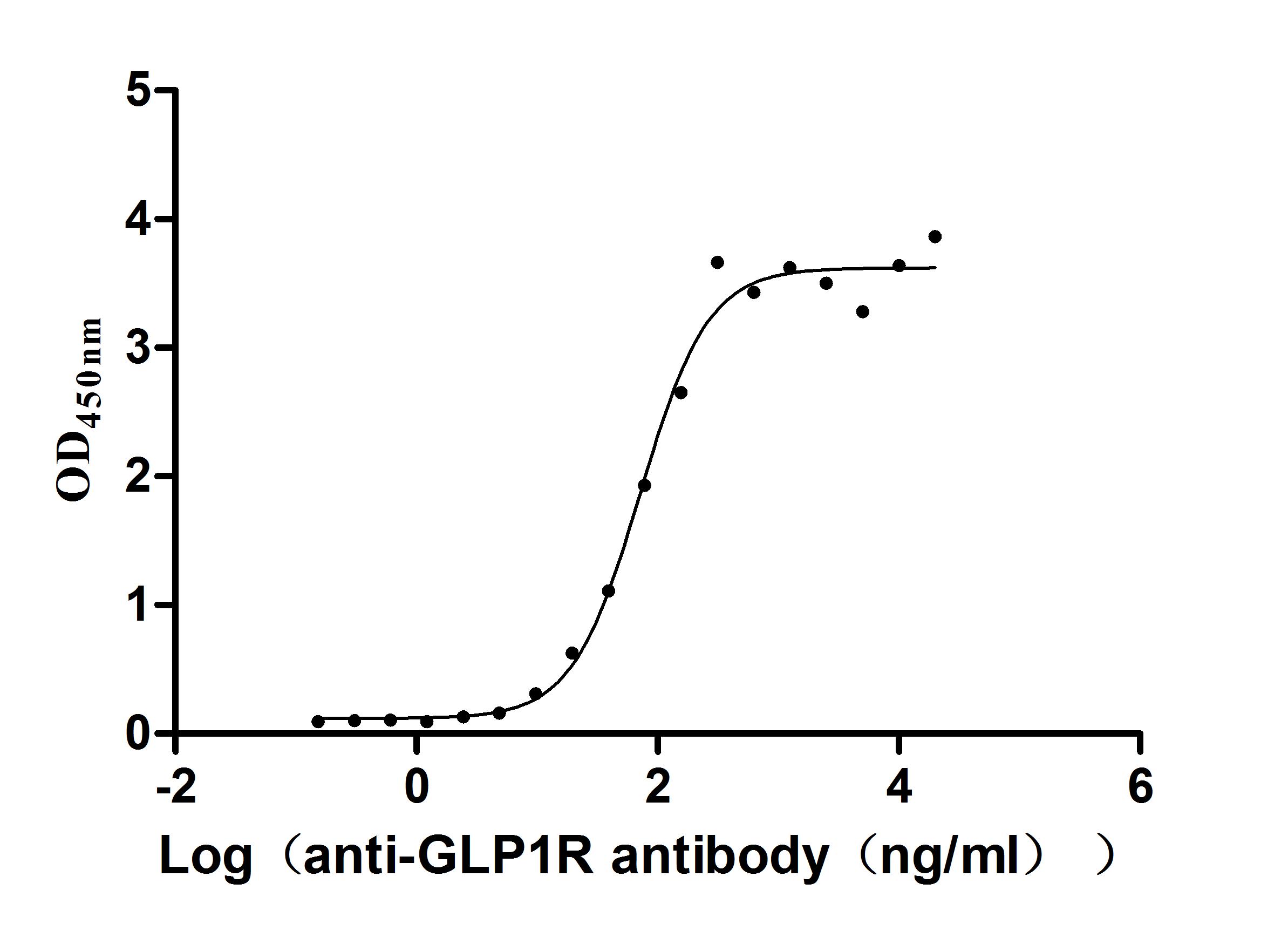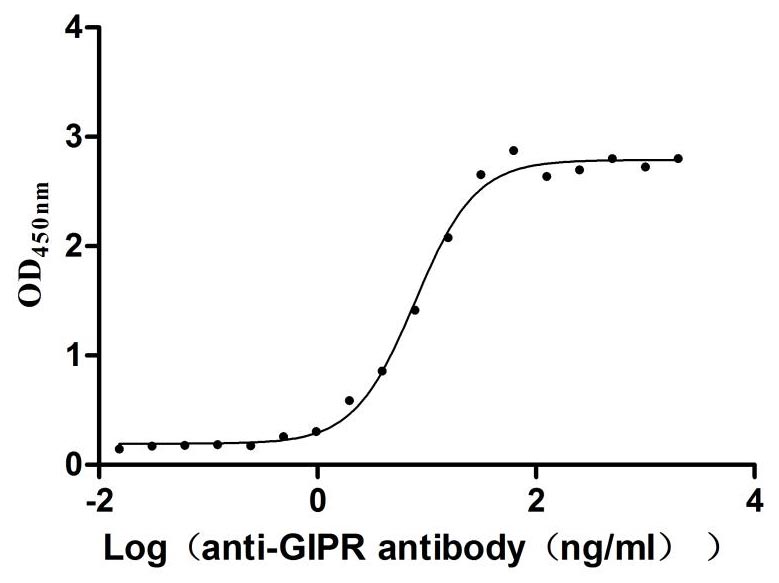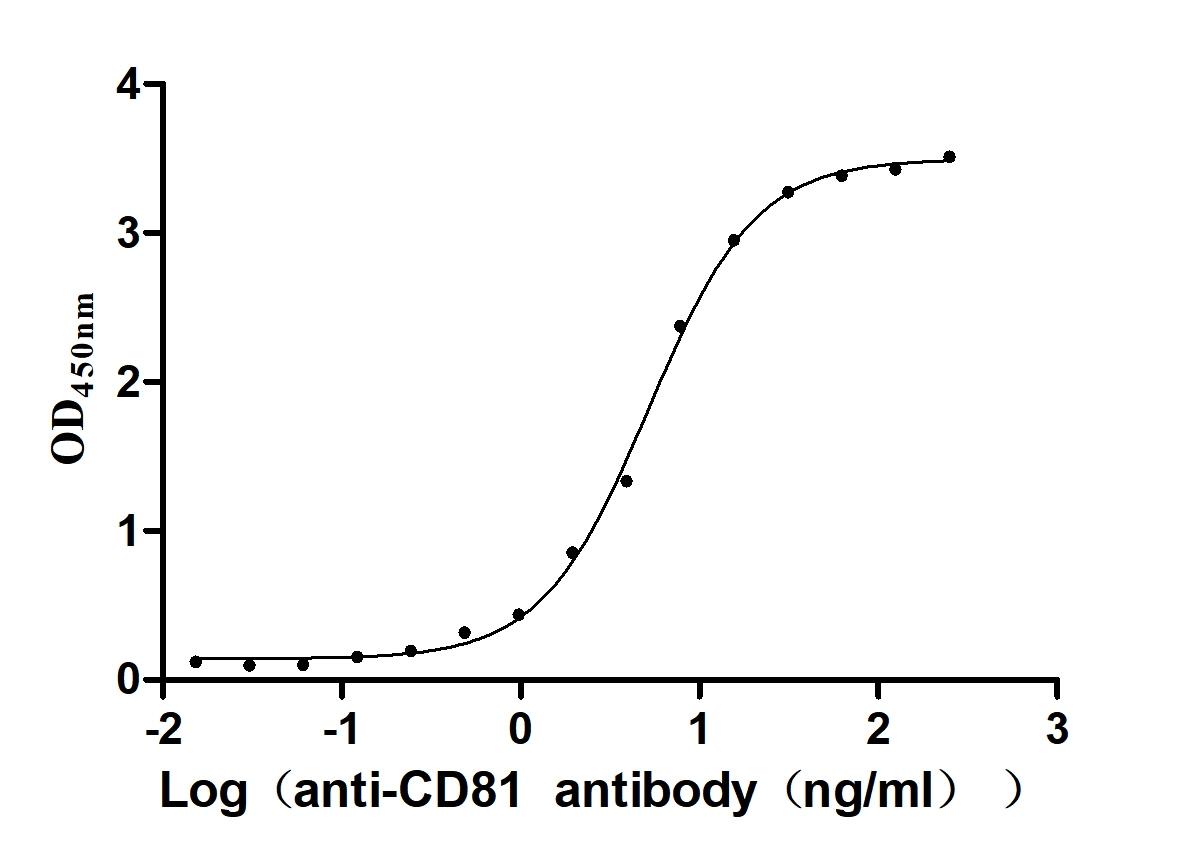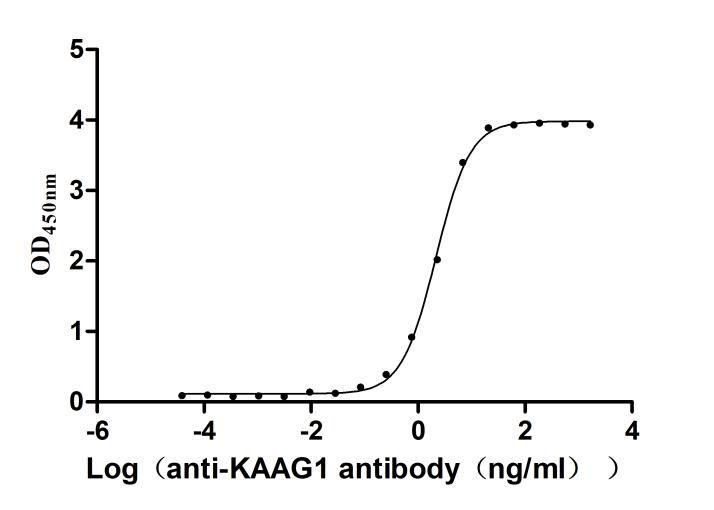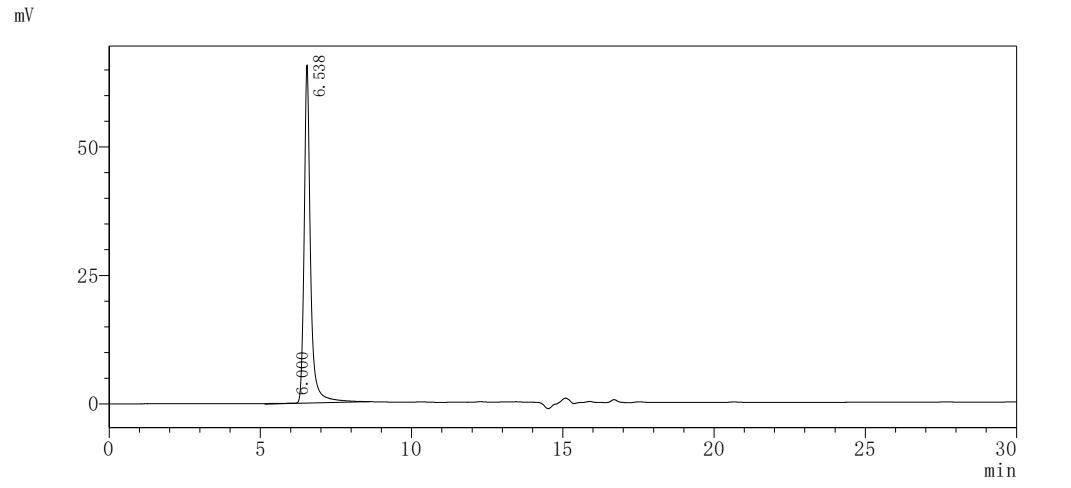Recombinant Mouse Ephrin-B1 (Efnb1)
-
中文名称:小鼠Efnb1重组蛋白
-
货号:CSB-CF007465MO
-
规格:
-
来源:in vitro E.coli expression system
-
其他:
产品详情
-
基因名:Efnb1
-
Uniprot No.:
-
别名:Efnb1; Epl2; Eplg2; Lerk2; Stra1; Ephrin-B1; CEK5 receptor ligand; CEK5-L; EFL-3; ELK ligand; ELK-L; EPH-related receptor tyrosine kinase ligand 2; LERK-2; Stimulated by retinoic acid gene 1 protein
-
种属:Mus musculus (Mouse)
-
蛋白长度:Full Length of Mature Protein
-
表达区域:25-345
-
氨基酸序列ATPLAKNLEPVSWSSLNPKFLSGKGLVIYPKIGDKLDIICPRAEAGRPYEYYKLYLVRPEQAAACSTVLDPNVLVTCNKPHQEIRFTIKFQEFSPNYMGLEFKKYHDYYITSTSNGSLEGLENREGGVCRTRTMKIVMKVGQDPNAVTPEQLTTSRPSKESDNTVKTATQAPGRGSQGDSDGKHETVNQEEKSGPGAGGGGSGDSDSFFNSKVALFAAVGAGCVIFLLIIIFLTVLLLKLRKRHRKHTQQRAAALSLSTLASPKGGSGTAGTEPSDIIIPLRTTENNYCPHYEKVSGDYGHPVYIVQEMPPQSPANIYYKV
Note: The complete sequence including tag sequence, target protein sequence and linker sequence could be provided upon request. -
蛋白标签:N-terminal 10xHis-tagged
-
产品提供形式:Liquid or Lyophilized powder
Note: We will preferentially ship the format that we have in stock, however, if you have any special requirement for the format, please remark your requirement when placing the order, we will prepare according to your demand. -
缓冲液:Lyophilized from Tris/PBS-based buffer, 6% Trehalose, pH 8.0
-
储存条件:Store at -20°C/-80°C upon receipt, aliquoting is necessary for mutiple use. Avoid repeated freeze-thaw cycles.
-
保质期:The shelf life is related to many factors, storage state, buffer ingredients, storage temperature and the stability of the protein itself.
Generally, the shelf life of liquid form is 6 months at -20°C/-80°C. The shelf life of lyophilized form is 12 months at -20°C/-80°C. -
货期:Basically, we can dispatch the products out in 1-3 working days after receiving your orders. Delivery time may differ from different purchasing way or location, please kindly consult your local distributors for specific delivery time.Note: All of our proteins are default shipped with normal blue ice packs, if you request to ship with dry ice, please communicate with us in advance and extra fees will be charged.
-
注意事项:Repeated freezing and thawing is not recommended. Store working aliquots at 4°C for up to one week.
-
Datasheet & COA:Please contact us to get it.
相关产品
靶点详情
-
功能:Cell surface transmembrane ligand for Eph receptors, a family of receptor tyrosine kinases which are crucial for migration, repulsion and adhesion during neuronal, vascular and epithelial development. Binding to Eph receptors residing on adjacent cells leads to contact-dependent bidirectional signaling into neighboring cells. Shows high affinity for the receptor tyrosine kinase EPHB1/ELK. Can also bind EPHB2 and EPHB3. Binds to, and induces the collapse of, commissural axons/growth cones in vitro. May play a role in constraining the orientation ...显示更多
-
基因功能参考文献:
- Lymphomas with low UTX expression express high levels of Efnb1, and cause significantly poor survival. PMID: 30006524
- that expression of EFNB1 and EFNB2 is implicated in Th cell differentiation and migration to inflammatory sites in both EAE and MS PMID: 27039370
- germinal center (GC)-expressed ephrin B1 (EFNB1) repulsively inhibited T cell to B cell adhesion and GC follicular T helper retention by signaling through TFH-expressed EPHB6 receptor; at the same time, EFNB1 promoted interleukin-21 production from GC TFH cells by signaling predominantly through EPHB4 PMID: 28408722
- these observations demonstrate the importance of ephrinB1 signalling between cells of the skeleton required for endochondral ossification. PMID: 27622886
- an autonomous receptor-like role for ephrin-B reverse signaling in the tangential migration of interneurons into the neocortex using ephrin-B (EfnB1/B2/B3) conditional triple mutant (TM(lz)) mice, is reported. PMID: 28947178
- These results indicate a novel mechanism of ephrin-Eph signaling independent of direct cell contact and proteolytic cleavage and suggest the participation of EphB2(+) extracellular vesicles in neural development and synapse physiology. PMID: 27354374
- ephrin-B1-mediated cell segregation occurs in the early neuroepithelium. PMID: 27810913
- Results suggest the involvement of ephrin-B1 signaling in astrocyte-mediated remodeling of excitatory synapses following injury, which can be accomplished through ephrin-B1-mediated regulation of STAT3 signaling in astrocytes. PMID: 26928051
- Conditioned deletion of ephrinB1 and/or ephrinB2 in either thymocytes or thymic epithelial cells alters the organization of thymic medulla and favors the appearance of thymic epithelial cysts. PMID: 25417117
- Efnb1 and Efnb2 in T cells are essential for pathogenic antibody production and for T cell migration to the inflamed paws in mice with collagen-induced arthritis. PMID: 25779027
- The EphB2 and ephrin-B1 are possibly involved in epithelial boundary formation at the squamocolumnar junction. PMID: 23881165
- EFNB1 contributes to the suppression of adipose inflammatory response. In obesity, reduction of adipose EFNB1 may accelerate the vicious cycle involved in adipose tissue inflammation. PMID: 24098442
- Overexpression of ephrin B1 in bone cells enhances bone mass. PMID: 23874863
- These results highlight the complex role of Eph:ephrin signaling in the development of the sensory-motor circuit innervating the limb. PMID: 24056079
- The results of this study demonstrated that ephrin-B1 inhibits nonradial migration of pyramidal neurons, thereby controlling the pattern of cortical columns. PMID: 24050402
- Ephrin-B1 and ephrin-B2 expressed on thymocytes play an autonomous role in T cell development and, expressed on thymic epithelial cells (TECs), their nonautonomous roles are partially overlapping. PMID: 23408838
- Results show that Efnb1 is a negative regulator of smooth muscle cell (VSMC)contractility and blood pressure (BP). PMID: 22393061
- myeloid lineage produced ephrin B1 is a negative regulator of bone resorption PMID: 22403721
- the function of EFNB1 in the T cell compartment could be compensated by other members of the EFN family, and that such redundancy safeguards the pivotal roles of EFNB1 in T cell development and function. PMID: 22182253
- Ephrin-B1 is necessary for cardiac tissue architecture cohesion by stabilizing the adult cardiomyocytes morphology through regulation of its lateral membrane. PMID: 22302788
- a novel function of Efnb1 and Efnb2 in stabilizing IL-7Ralpha expression at the post-translational level PMID: 22069310
- Efnb1 and Efnb2 proteins regulate thymocyte development, peripheral T cell differentiation, and antiviral immune responses and are essential for interleukin-6 (IL-6) signaling. PMID: 21976681
- Ephrin-B1 mediates ventral-temporal retinal ganglion cells axon mapping within the superior colliculus. PMID: 21847105
- Animals lacking ephrin-B1 recapitulate loss of the receptor and show that this molecule acts as the ligand to stimulate EphB2 forward signaling and direct migration of the neural progenitors. PMID: 21832177
- Data report that the expression of ephrin-B1 is controlled by a feedback loop involving posttranscriptional regulatory mechanisms and miR-124. PMID: 20308325
- the involvement of NHERF1 and TAZ in mediating the effects of the ephrin B1 ligand on osteoblast function was studied. PMID: 19995908
- GST fusion proteins of ephrin B1 cytoplasmic domain were phosphorylated by a src-family kinase, activated by the ephrin B2 receptor ectodomain fused to human IgG Fc. PMID: 11983165
- findings suggest that PDZ interactions in the postsynaptic neuron and trans-synaptic interactions between postsynaptic EphB receptors and presynaptic B-ephrins are necessary for the induction of mossy fiber LTP PMID: 12052960
- EphB1/Fc induced endothelial ephrin-B1 tyrosine phosphorylation, migration and integrin-mediated attachment and promoted neovascularization, in vivo, in a mouse corneal micropocket assay. PMID: 12118063
- a novel reverse signaling pathway transduced by ephrin-B1, which is independent of tyrosine phosphorylation but involves the activation of JNK kinase and leads to changes in cell morphology PMID: 12709432
- Data report that targeted inactivation of the Eph receptor ligand ephrinB1 in mouse caused perinatal lethality, edema, defective body wall closure, and skeletal abnormalities. PMID: 12919674
- EphB1 is found exclusively in regions of retina that give rise to the ipsilateral projection at the optic chiasm; EphB1 null mice exhibit a dramatically reduced ipsilateral projection. PMID: 12971893
- data show that cell contact-induced EphB-ephrinB complexes are rapidly endocytosed during the retraction of cells and neuronal growth cones. PMID: 12973358
- ephrin-B1 acts both as a ligand and as a receptor in a tissue-specific manner during embryogenesis; conditional deletion of ephrin-B1 demonstrated that ephrin-B1 acts autonomously in neural crest cells, and controls their migration PMID: 15037550
- EFNB1 is pivotal in T-cell-T-cell costimulation and in reducing T-cell response threshold to antigen stimulation PMID: 15502157
- the ephrin-B1/EphB system may participate in the lesion-induced plasticity processes in the adult mouse hippocampus PMID: 15932593
- EFNB1 and EFNB1 receptors are critical in thymocyte development PMID: 16476740
- gap junction communication (GJC) is inhibited at ectopic ephrin boundaries and ephrin-B1 interacts with connexin43 and regulates its distribution PMID: 16968134
- results therefore support a role for Eph/ephrinB in the processes of development and selection of thymocytes as well as in the establishment of the three-dimensional organization of TEC PMID: 17668899
- EphrinB1 may play an important role in the inflammatory states of rheumatoid arthritis, by affecting the population/function of T cells. PMID: 17942634
- Ephrin-B function is critical for the maintenance of the neural progenitor cell state and that this role of ephrin-B is mediated by PDZ-RGS3, likely via interacting with the noncanonical G protein signaling pathway. PMID: 18541704
- EphrinBs may act as a prominent contributor to peripheral sensitization, and demonstrate that activation of peripheral ephrinBs/EphBs system induces hyperalgesia through a MAPKs-mediated mechanism. PMID: 18706764
- Ephrin-B1 is expressed on dendritic spines in the cortex, supporting a role in synaptic plasticity. However, the distribution in regions such as the hippocampus and cerebellum suggests an additional structural role at the neuron/glia interface. PMID: 18973746
- These results suggest that ephrinB1 plays a crucial role in LPA-induced neuropathic pain. In addition, the present study may provide a new strategy to identify unique neuropathic pain-related genes. PMID: 19111589
- beta-arrestin2 inhibits osteoclastogenesis in vitro, which resulted in decreased bone resorption in vivo by regulating RANKL/OPG production and ephrins mRNAs. PMID: 19113915
- Notch signaling promotes the generation of EphrinB1-positive intestinal epithelial cells. PMID: 19332065
- evidence presented that ZHX2 & ephrin-B1 cytoplasmic domain can interact & regulate transcription; study identifies ZHX2 as novel regulator of neural progenitor cell maintenance & suggests potential nuclear mechanism of ephrin-B function in the cortex PMID: 19515908
- both PDZ and phosphorylation-dependent reverse signaling by ephrin-B1 are dispensable for craniofacial and skeletal development, whereas PDZ-dependent reverse signaling by ephrin-B1 is critical for the formation of the corpus callosum PMID: 19515977
收起更多
-
亚细胞定位:Cell membrane; Single-pass type I membrane protein. Membrane raft.; [Ephrin-B1 C-terminal fragment]: Cell membrane; Single-pass type I membrane protein.; [Ephrin-B1 intracellular domain]: Nucleus.
-
蛋白家族:Ephrin family
-
组织特异性:Expressed on lateral floor plate cells, specifically on commissural axon segments that have passed through the floor plate. Expressed in cells of the retinal ganglion cell layer during retinal axon guidance to the optic disk. Expressed in myogenic progeni
-
数据库链接:
KEGG: mmu:13641
STRING: 10090.ENSMUSP00000050716
UniGene: Mm.3374



